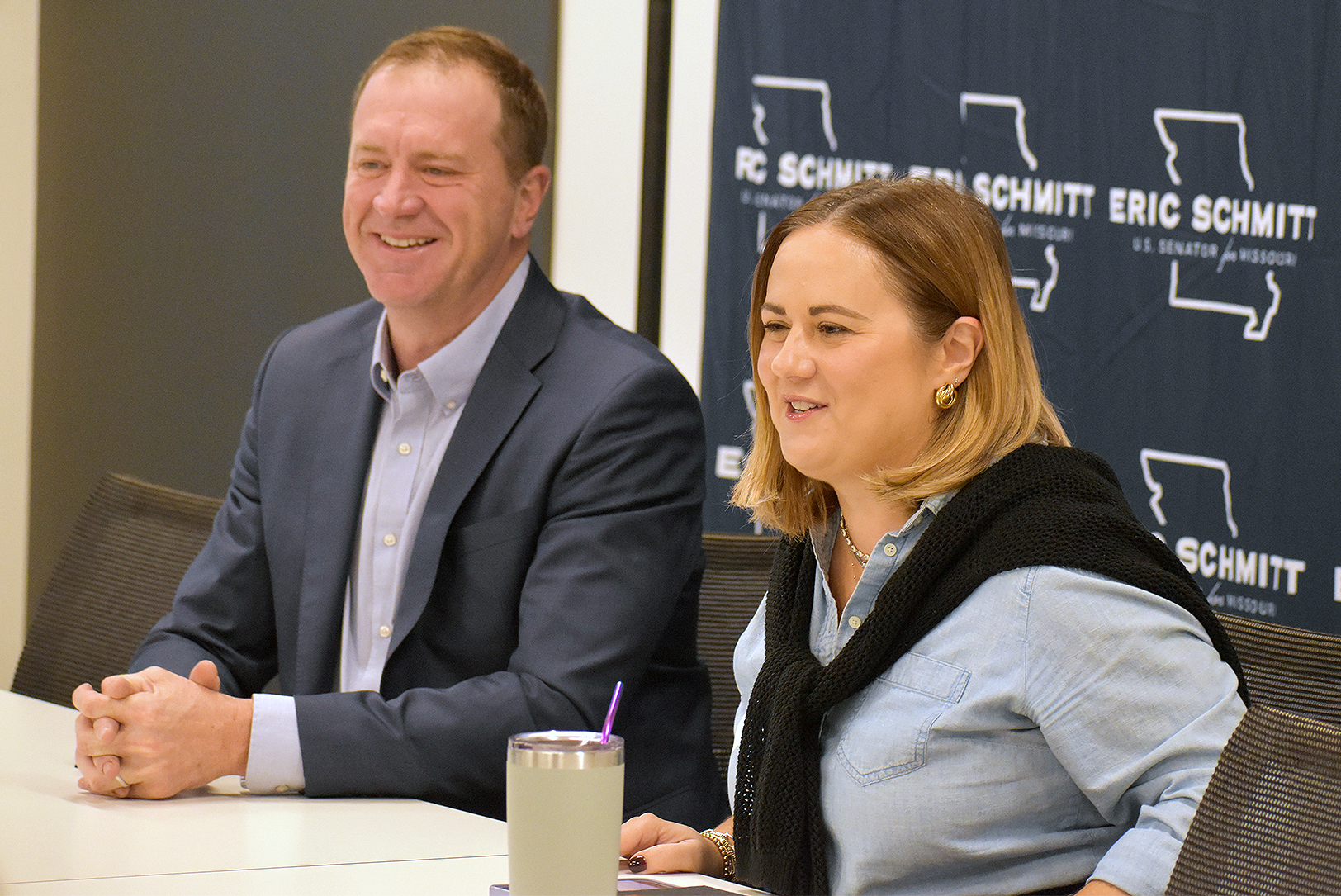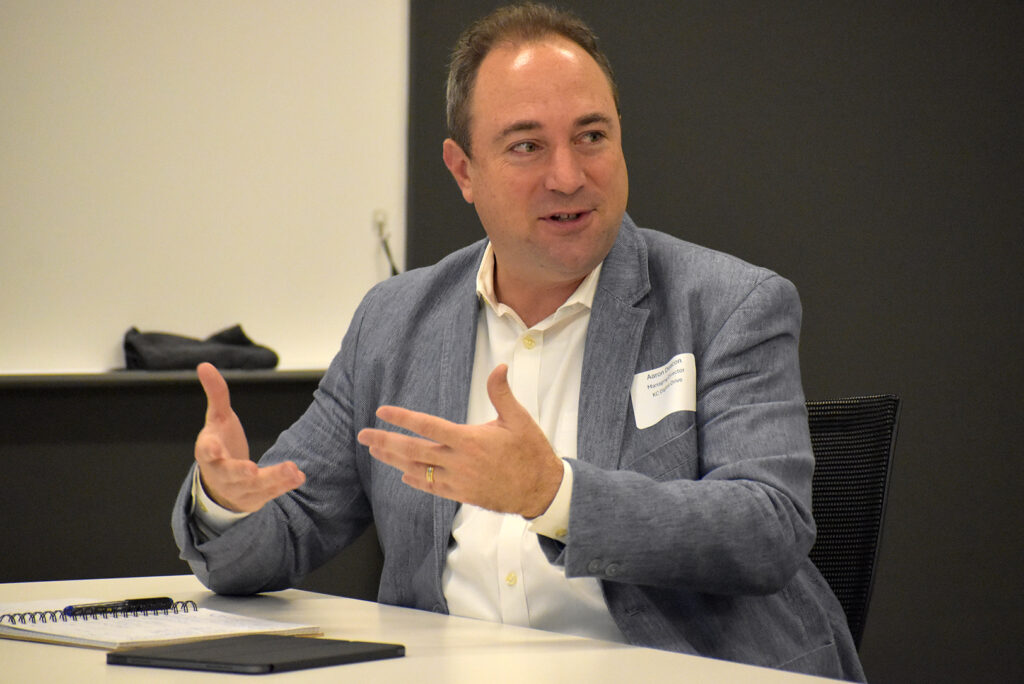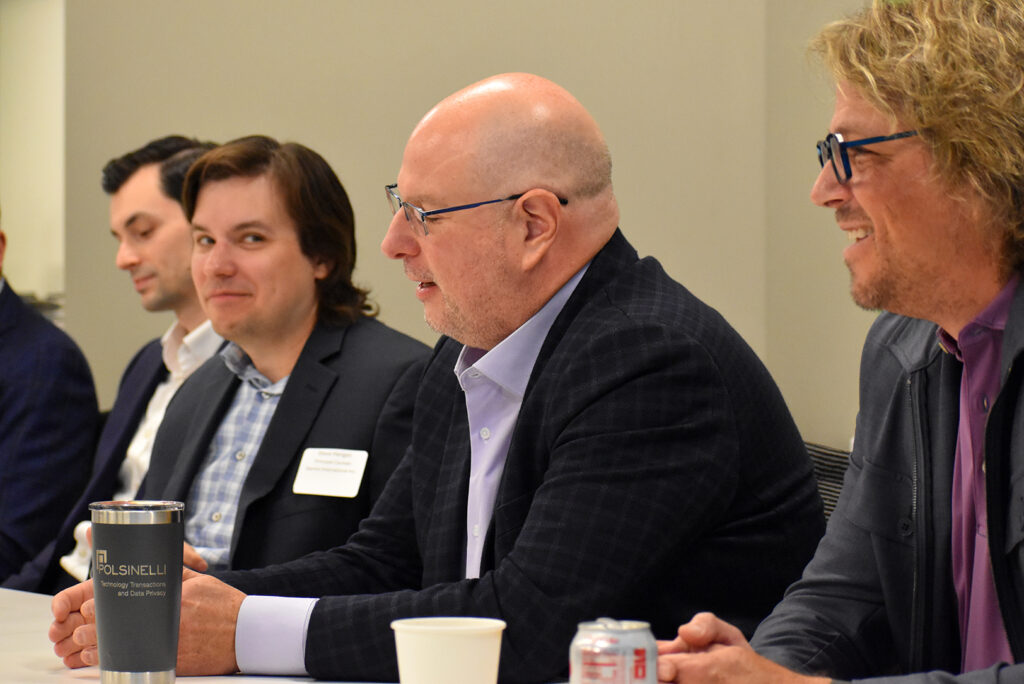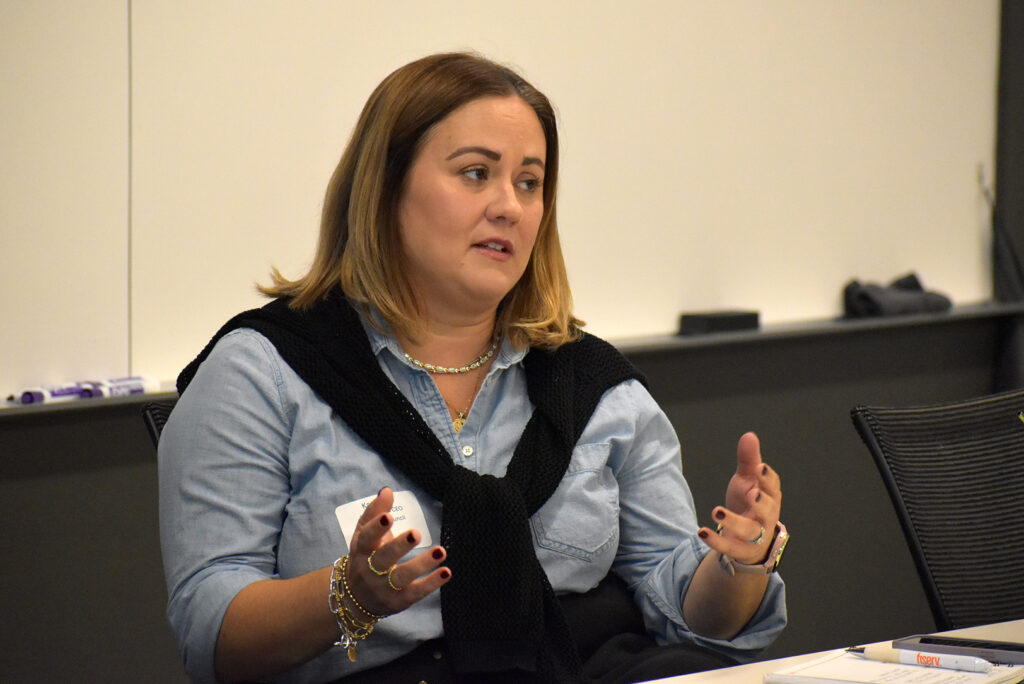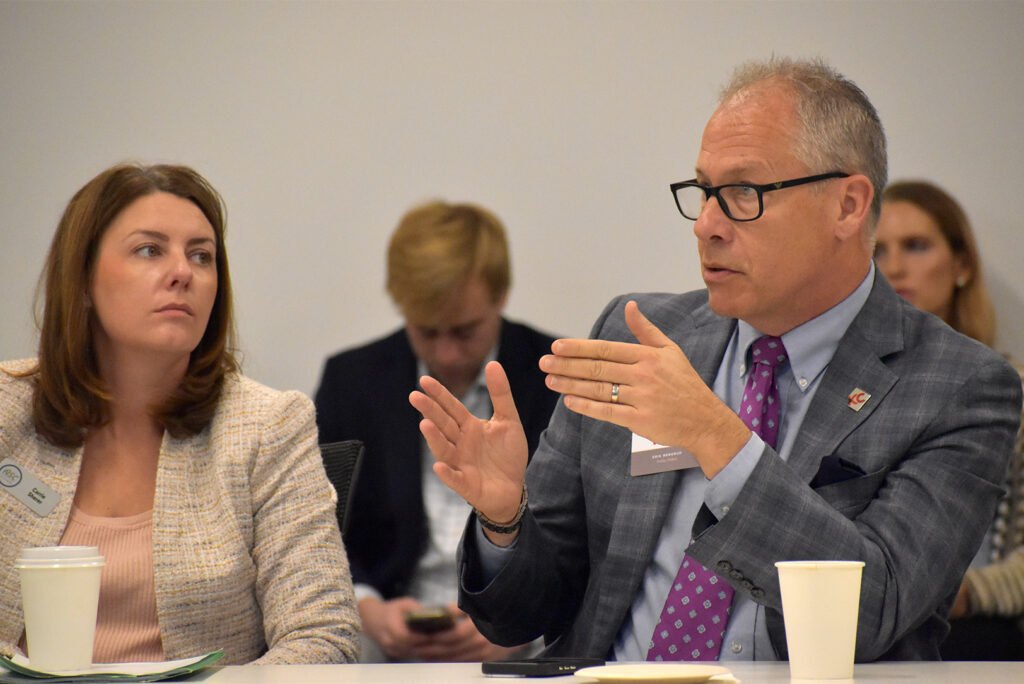As artificial intelligence reshapes the way Kansas City works, civic and elected leaders want to ensure small businesses and the region’s tech community have seats at the table. Federal regulation could help, said Eric Schmitt.
“For me, [it’s about] making sure that the big tech companies don’t block out a lot of the innovators, say smaller tech or little tech, so they have a place,” U.S. Sen. Schmitt, R-Missouri, told a group of local tech stakeholders Tuesday during a Tech and AI Roundtable event at H&R Block headquarters. “That’s the kind of innovation and competition that’s going to make us win this really important AI race with China.”
The discussion, hosted by the KC Tech Council, centered on how artificial intelligence is already impacting industries of all sizes — from small businesses to global companies — while also raising new challenges in workforce readiness, energy demands, and data security.
“There’s a lot of innovation happening in Kansas City, which is great, and that bodes well for the workforce of the future,” Schmitt said. “This is making sure that Kansas City, Missouri, can benefit from this AI boom that we’re seeing that’s going to make people more productive.”
Balancing limits with opportunity
As the group explored potential AI-related policies at the federal and state levels, both Schmitt and Kara Lowe, CEO of KC Tech Council, voiced concern over fragmented regulation. Lowe highlighted how state-by-state policies could disproportionately burden smaller companies.
“The encumbrance on small and mid-sized companies is greater than in some cases those that are large companies that have large compliance teams,” she said. “It continues to be an ever-complex patchwork.”
Schmitt agreed that consistent federal oversight is key.
“It’s probably important for the federal government to come in and preempt this,” he said. “Can you imagine Kansas has one set of rules for AI and Missouri has another? That’s not going to work.”
Workforce and the future of learning
Education and workforce development were also key topics, with Schmitt calling for a shift toward lifelong learning to meet the demands of a rapidly changing economy.
“This idea that you’re going to learn everything you need to know for the rest of your life in four years before your degree is kind of an outdated model,” he said. “Making sure we have lifetime learners, AI can play a role in that.”
Lowe echoed the importance of aligning education with business needs, pointing to the KC TechBridge, an initiative that is building a stronger, employer-led tech talent pipeline in Kansas City, as a step forward.
“We’re embarking on a project to bring together the needs of the business community and put a lens on our education and training space when it comes to tech jobs,” she said.
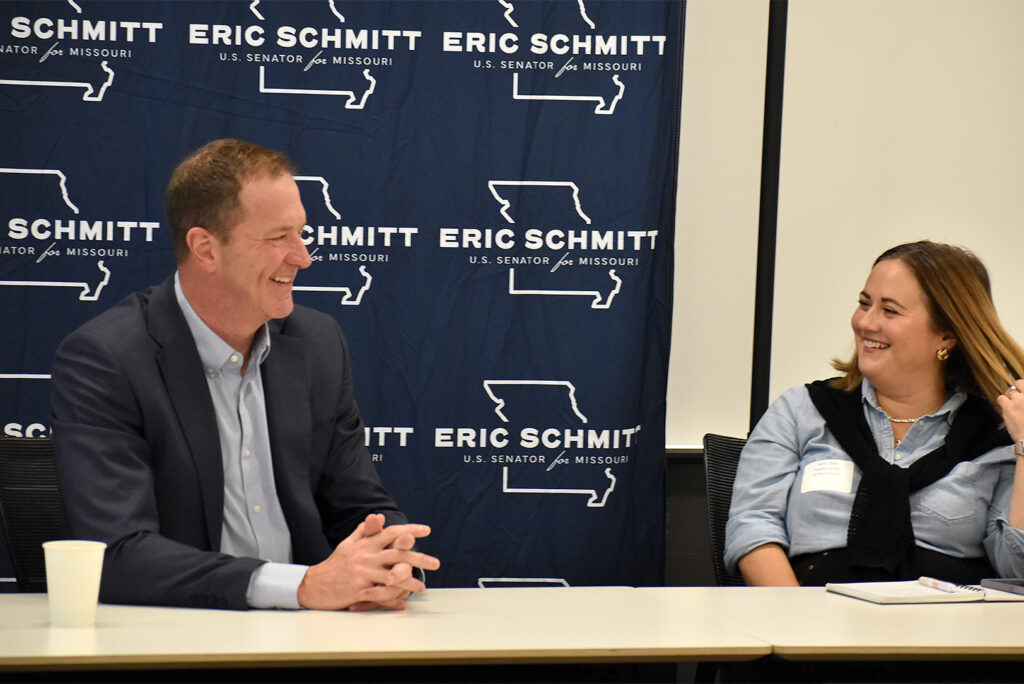
U.S. Eric Schmitt, R-Missouri, and Kara Lowe, CEO of KC Tech Council, chat during a roundtable conversation AI and tech in Kansas City; photo by Taylor Wilmore, Startland News
Energy, infrastructure, and national security
AI’s impact reaches beyond the workforce and into national priorities like energy and defense, Schmitt stressed, noting the importance of domestic computing infrastructure and future energy solutions.
“We have to have the processing ability here in this country,” he said. “Our energy needs over the next five to 10 years are going to be astronomically higher than they are right now. So what are those energy sources that are cheap that we could do? It’s small, modular, nuclear reactors.”
Lowe noted that Kansas City’s legacy in engineering and construction could help position the region for continued leadership in these areas.
“We kind of have this almost central nervous system here in this region,” she said. “And I think it is a competitive advantage.”
Both Schmitt and Lowe agreed that Kansas City’s combination of innovation, technical talent, and cross-industry collaboration makes it well-positioned to lead in the nation’s AI-driven future.
“It’s an exciting time,” Schmitt said. “There’s immense opportunity, and Kansas City is well-situated to be a leader.”




